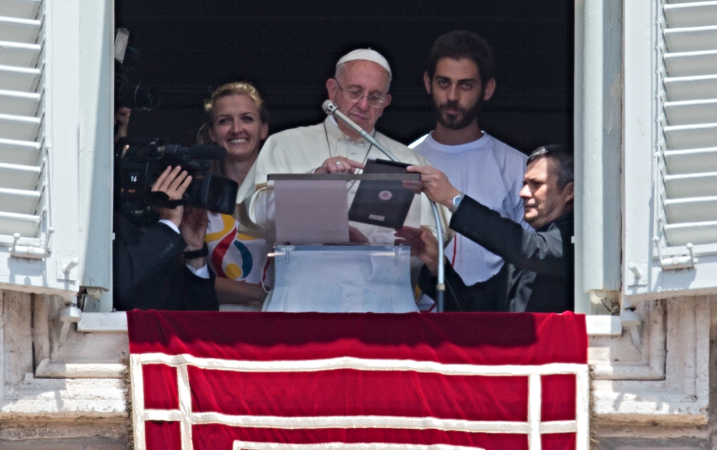Pope urges politicians and opinionmakers to tone down the rhetoric
Pope Francis is warning public opinion-makers against “harsh and moralistic words and actions” that risk alienating people the Church wants to reach.
Jan 29, 2016

ROME: Pope Francis is warning public opinion-makers against “harsh and moralistic words and actions” that risk alienating people the Church wants to reach.
Two days after Francis called on business leaders gathered in Davos, Switzerland, to avoid an economy of “soulless machines,” he returned to the theme in Friday’s message, asking politicians and others in the communications business to be inspired by mercy.
He asked them to avoid exploiting people and situations to stoke the flames of “mistrust, fear, and hatred” with their words.
“Instead, courage is needed to guide people toward processes of reconciliation,” he wrote. “It is precisely such positive and creative boldness which offers real solutions to ancient conflicts and the opportunity to build lasting peace.”
He also asked that society be seen not as a forum where strangers compete, but as a family, and he described e-mails, text messages, and social networks as a “gift from God.”
“We can and we must judge situations of sin such as violence, corruption, and exploitation,” Francis wrote in a message released by the Vatican, “but we may not judge individuals, since only God can see into the depths of their hearts.”
Acknowledging those who feel that a society rooted in mercy is “hopelessly idealistic,” he said these doubts are the reason why he wants society to be above all “a family,” where “the door is always open and where everyone feels welcome.”
The pope’s comments came in an annual message for the Church’s World Day of Social Communications, this year aligned with the Holy Year of Mercy currently underway.
The message was released only minutes after Pope Francis welcomed the CEO of Apple, Tim Cook, for a private audience. The meeting came a week after he met with Eric Schmidt, CEO of another technological giant, Google.
Although the Vatican has declined to comment on either meeting, insisting they were private audiences, a short bit of video footage from last week’s meeting shows Schmidt telling the pope “we’ll get it done.”
In the message for the 50th day of Social Communications, Francis also included a reflection on e-mails, text messages, social networks and, chats, saying they can be “fully human forms of communication.”
According to the pope, it’s not the technology used that determines if communication is authentic, but “the human heart.”
But he’s not naive: He issued a warning defining the digital world as a public square where “we can either encourage or demean one another, engage in a meaningful discussion or unfair attacks.”
In tune with the Holy Year of Mercy, most of the pope’s message turned on this theme. Addressing his own pastors, Francis told them that mercy can mitigate life’s troubles and offer support to those who have only encountered “the coldness of judgment.’
“May [the Church’s] way of communicating help to overcome the mindset that neatly separates sinners from the righteous,” Francis wrote.
A literature professor during his early priesthood years, Francis also quoted Shakespeare’s “The Merchant of Venice” to get his message through: “The quality of mercy is not strained. It droppeth as the gentle rain from heaven upon the place beneath. It is twice blessed: it blesseth him that gives and him that takes.”--Crux







Total Comments:0